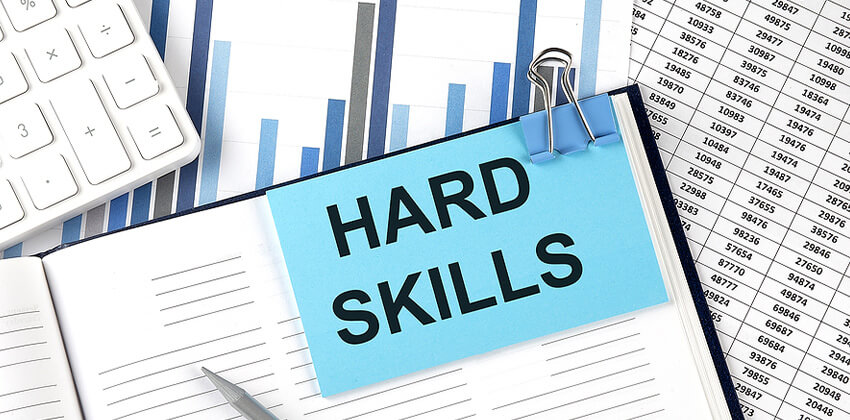
Following up, after an introduction call, after sending your resume, or after an interview can have a great impact on whether you are selected for the next steps in the hiring process.
And, obviously, in getting the job offer.
Follow-up is one of the things job seekers often seek advice about, and one that many don’t do very well.
As an Executive Recruiter, I often coach candidates I’m working with on how they should be following up with the potential employer, yet it still often doesn’t get handled well. Here are my observations…
Disconnect Between Good Practice, Good Intentions, and Reality
The vast majority of people will tell you to send a thank you note after a job interview.
Yet only around 25% of them ever actually do it!
There’s a very large disconnect between what they say they believe, and what they actually do.
Consequently, by sending your thank you note after an interview, you distinguish yourself from the majority of other candidates.
Advertisement
The Positive Impact of Following Up
A very brief acknowledgement of the contact, written professionally and without typos, signing off with your contact information so they always have it handy, does nothing but make a positive impression.
As a recruiter, seeing how my clients (the employers) choose one candidate over another, the “little” things may tip the scale toward one candidate over another when both seem closely qualified.
After receiving good follow-up, hiring managers frequently tell me —
“This candidate seemed to be more interested. They sent me a thank you note, and the others didn’t.”
“This candidate was persistent, they called and followed up regularly, and were very thorough in the process.”
Rather than simply claiming important skills, you are demonstrating them:
- Your attention to detail.
- Your communications skills (grammar, spelling, email).
- Your follow-through.
- Your understanding of business etiquette.
The most “technically qualified” person is not always the person who receives the job offer. An employer wants to hire the best “complete package.”
Communication, personality, professionalism, and tenacity have as much influence in the selection process as skills.
Common Job Seeker Fears/Excuses
These are the reasons I hear most often for not following up.
-
Fear of Stalking
While I agree that it’s a bad idea to hound someone, I find that most job seekers believe they are a stalker LONG before the employer ever feels stalked.
Most people are too reluctant to be persistent. Being professionally, and pleasantly persistent is key. An employer that receives a call or email from someone that is professional, respectful, brief, to the point, upbeat, and humble will not be put-off.
Rather, much more likely to be impressed by the interest, and the way the person communicates and presents themselves. They will also notice that the candidate is different from other candidates, because the vast majority of people don’t do it.
-
Oops – I Forgot
A common response when I ask someone if they followed up after an interview or some other connection is for them to say they “forgot.”
In most cases I don’t think it’s their memory that kept them from doing it, but rather that they didn’t know how to do it well, assuming — wrongly — that no follow up is better than saying something in a less than ideal way.
While it is critical that a note has no spelling errors, terrible grammar, or slang, there are generally no magic words that need to be said. Whether it’s in a phone call or a note… brevity is a virtue.
A simple “Thank you for your time and consideration” will make a positive impression, while no follow up makes none, leaving you lost in the majority who don’t follow up.
-
Fear of Appearing Desperate
The assumption made is that following up and thanking the employer for each contact makes the job seeker look “needy” somehow.
If each call and email sounds as if you’re practically begging for the role, then I would agree that you sound desperate.
However, if you follow up with confidence, cheerfulness, and professional determination, you create an impression of someone with resolve rather than desperation. How you do your follow up makes the difference.
Bottom Line
As you go through your job search… making networking contacts and introduction calls, sending resumes, applying online, going to interviews and making other connections… how well do you follow up? Be polite, professional, and consistent. You will see the difference in your results!
More About Interview Follow Up
- Guide to Writing Interview Thank You Notes
- Email Thank You Do’s and Don’ts
- 7 Costly Interview Thank You Note Mistakes
- Turning Rejection into Opportunity with a Thank You Note
- Should You Ask for Feedback After a Job Rejection?
About the author…
Harry Urschel has over 25 years experience as an independent recruiter in Minnesota. He currently operates as e-Executives, writes a blog for Job Seekers called The Wise Job Search, and can be found on Twitter as @HarryUrschel and on LinkedIn.
Don't forget to share this article with friends!




